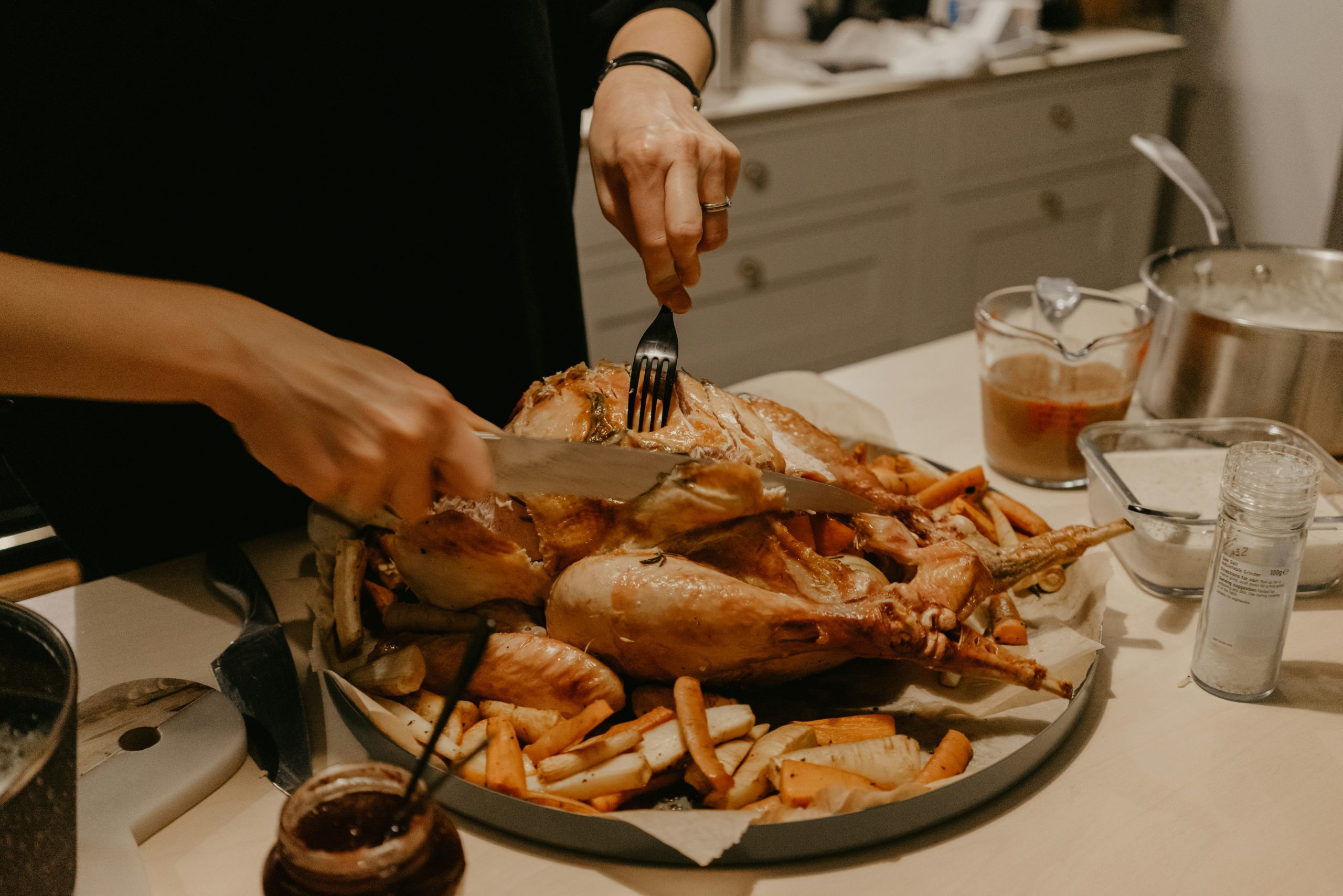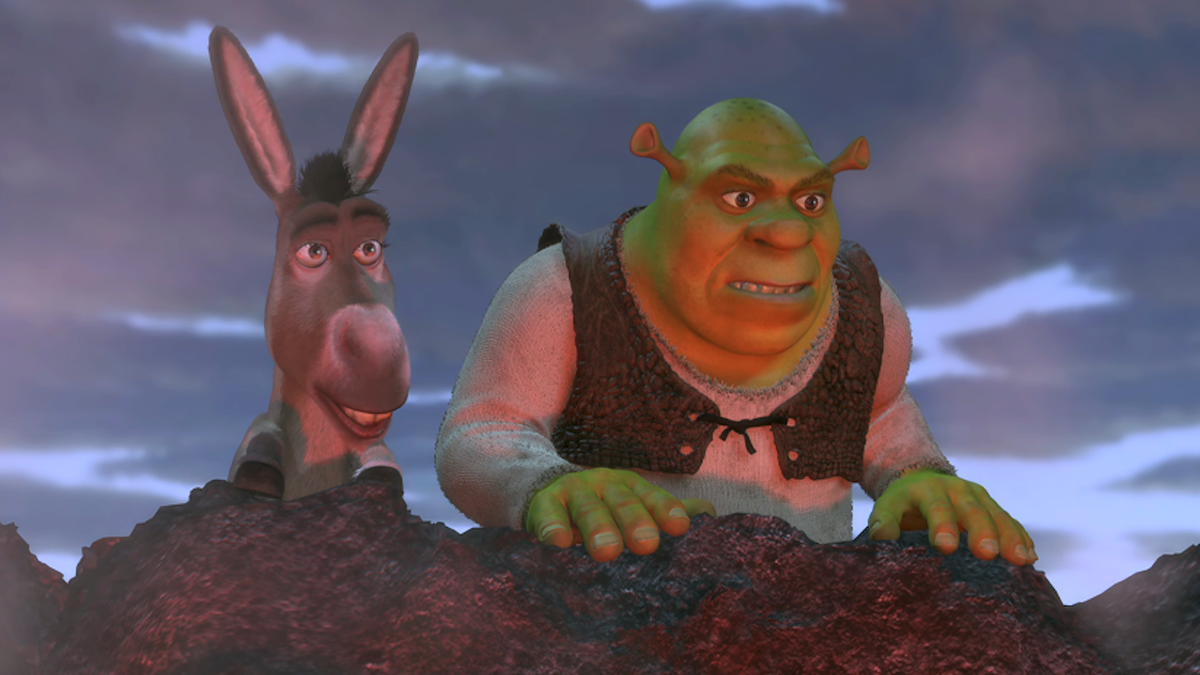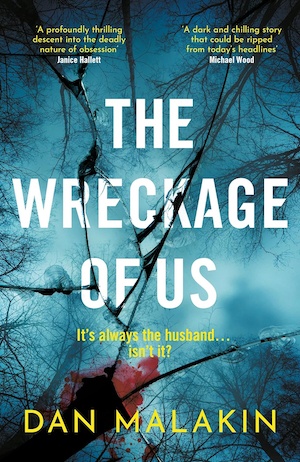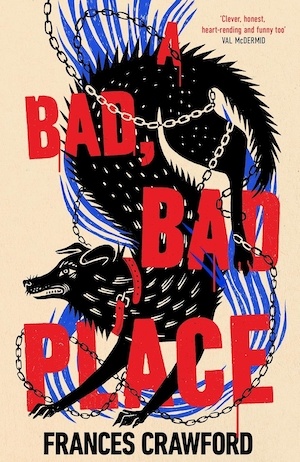“On the Pioneer Woman” by Krys Malcolm Belc
Nearly twenty years after I first discover the Pioneer Woman, I sit naked in bed nursing my daughter, one hand holding my phone over her head, the other holding a burp cloth to catch the leaking milk on the other side, and watch again and again the video in which she cleans out her pantry. I own a home and have a dual-income middle class family. There is nothing I truly want for in life.
And yet. This walk-in space, the wall-to-wall shelving, the granite countertops inside the pantry itself, and more than that, to have the disposable income to purchase all of those beautiful containers for the flours, the sugars, the pastas, the chocolate chips. The giant jars are spotlessly clean and each has a lid that fits. The sound of lids being taken off containers. Pop. Snap. Pop. Handfuls and handfuls of pecans put into one. In my mind the cost racks up. She nests vintage Pyrex bowls. She lifts up multiple Dutch ovens onto a shelf. None of her baking dishes are scratched. Clink clink clink, she lines up a dozen bottles of Topo Chico. She has not one but two boxes of Droste cocoa powder. I want to live in this pantry.
Growing up, my mother made dinner. She stayed at home with me and my five siblings, and cooking for us was the work of her life. Our hunger came in an endless cycle, and so she spent much of her time in the kitchen. Did I, when she shoved plate after plate of sandwiches and snacks across the counter at us, think this would be my life, too? I don’t think so—I didn’t know I would end up a man, but I did know I didn’t want the life she’d had. But here I am. When Anna and I started our family, we didn’t talk about who would do what. But I could cook and she could not, and we fell into a rhythm centered around the meals I make. My own four young children seem to want lunch the moment I’m done cleaning up after breakfast. I have, in a way, become my mother, become my family’s pioneer woman.
The internet’s Pioneer Woman is Ree Drummond, and her cultural celebrity began with a blog she launched in the aughts, on which she wrote about her daily life, including what she cooked for her husband, Ladd, and their four children (she and Ladd began parenting a fifth child, a teenage foster son, when her other children were teens and young adults). The cheesy wholesomeness of her photographs and stories of homeschooling on the ranch and her cheeky jokes belied the vast cattle empire she married into—her in-laws are one of the biggest landholding families in America.
I have to be honest: I probably gravitated towards her recipes first because they seemed like things I could cook for my parents and siblings, when I visited home, due to the volume and lack of “fussy” ingredients (Drummond lives a ways away from a grocery store, and her rich husband has the palate of a toddler). When I’m home, with my family of origin, I eclipse my mother, even, slipping into the role of the cook. The cook doesn’t have to socialize as much, doesn’t have to drink as much, can be a little weird, just as long as the dinner’s good. The kitchen is a place to hide from the pressure, the banter. Maybe that’s what drew me in there in the first place. The pressure’s different—not on how you act, but rather on what you make.
The kitchen is a place to hide from the pressure, the banter. Maybe that’s what drew me in there in the first place.
The Pioneer Woman cooks grilled chicken, burgers, one-pot pastas, those sorts of things. The kinds of desserts kids love: a massive Texas sheet cake baked on a half sheet pan, a peanut butter pie with Oreo crust, a puckeringly tart lemon icebox pie topped with whipped cream.
In a wide-ranging 2011 profile of Drummond, surmising about The Pioneer Woman’s fame, Amanda Fortini writes, “The amateur country-girl persona works as a literary device because it allows readers to imagine falling in love and ditching their frenzied lives for a calmer, more agrarian existence, without having to abandon the notion that they are sophisticated, independent women.” It’s a She’s like me, only she lives out there, sort of a thing. I remember reading the profile. A friend and I—neither of us had children yet, and she had her only around the time I had my fourth—were trying to determine how right-wing she was, parsing through Fortini’s words for a clue about how much it was okay to like her, okay to watch her. Of course, she had all the hallmarks of someone I could not have in my life, not in a close way, anyway: church, homeschooling, all that land. Was she really something like us?
When I found her, it’s true that there was something admittedly aspirational about the idea of getting away, something that, nearly twenty years and four kids after I started reading her, I still think about. Living in Philadelphia in early adulthood, stepping over mounds of trash, needles and dirty diapers and take-out refuse, all just to get onto the subway, to get to the bus station to get on the bus to work, who wouldn’t want to live out in the country far from people for a while? My life was so very peopled, by students and then by my own children, too. As improbable as this life seemed for me, an unhappy twenty-something closeted trans man, wasn’t it improbable for Ree, too? That was the point: she was a city girl, an LA girl who had left Oklahoma to attend USC. She only ended up on a ranch because she met her husband in a bar, because of that improbable way love can reorient the trajectory of your life.
Lately, I can’t stop thinking about Curtis Sittenfeld’s “The Prairie Wife.” In the story, Kirsten, a thirty- or forty-something working mom of two kids cannot stop reading content from the social media universe created by Lucy Headrick, a woman with whom Kirsten had a fling the summer after her freshman year of college. In the twenty years since, Lucy has morphed from a self-declared college lesbian into a Ree Drummond-like figure: a Missouri proto-tradwife with 3.1 million followers.
Kirsten is married to Casey, a partner for whom Sittenfeld conveniently avoids using pronouns and words like “husband” and “wife” in describing. The first time, I admit, I thought Casey was a dude. I can’t remember what I was doing while I listened to Sittenfeld read her story. Chores, probably. Listening to short stories while I scrub toilets and refill hand soaps from a big tub of clear Target-brand soap makes me feel literary, like I belong in the world of words. As I cleaned, my mind filed away Casey as a husband. I guess I thought that Kirsten saw Lucy as some sort of road not taken because, in the story, Kirsten says, cruelly, that sex with Lucy isn’t real sex. To her, sex with another woman is a warm-up act to better, realer sex she will have with men. For some reason I believed that immature Kirsten of the flashback. That she married Casey, a man. But then, it’s revealed—though is it a revelation to anyone but me?—that Kirsten ended up with a woman. In that way, the famous and unbelievably wealthy Lucy was not a warm-up but rather a gateway into a world of queerness.
But what sort of queerness? The story is about a boring domestic trap. In this story is the queer world of negotiating which parent wakes the kids up and which makes breakfast, which parent will bring the forgotten instrument to school, of wondering what it means if your exhausted co-parent does or does not put their arm around you before sleep. It’s unsettlingly unsexy and hard, something usually contained to the world of literature about cishet people. “This is what this stage is like,” Casey says to Kirsten near the end of the story. Kirsten is worried about how time is passing, how they will look back at this part of their lives.
Anna and I, we had the opposite worry. Our daughter, our third child, turned five. She went to kindergarten. We let our older son walk his siblings to and from school. We left them at this playground, then this other one. We told babysitters, You don’t…honestly really need to do anything with them. We hired a babysitter who was in nursing school and told the kids to leave her alone, to just let her study. They walked themselves to the corner store and to the donut shop. I watched them morph into Philadelphia pedestrians, not believing in the power of any light or stop sign. They would stand at the corner, crane their necks far into the street, step out one step, and wait to be waved by the driver of the stopped car. They read big books and had real ideas. My time with very young children was passing. I was in my early thirties, then I was in my mid-thirties. And Anna and I said: wait, we need this to go on, we aren’t done with this. Whatever this chaos is, this is where we need to be. And that’s when we had our fourth.
Back when Anna and I were in college, we were going out to rent a movie when we had an argument, not for the first time, about how to be in the world as a unit: how to act around our parents, what it meant to be out, in which states we would hold hands, who knows which of the spinning wheel of being-a-queer-kid-fucking-sucks self-absorbed picks it was. And she said something that made me realize she was grieving the world of straightness, the world I never for a minute thought I would be a part of. I didn’t have the words for it but I was always set apart. Never, not once, did I picture a wedding or a baby shower or myself, on the other side of the table at a parent-teacher conference, when I was a child. In these moments she would always remind me of how, at scouting camp in Poland when she was a little girl, they held fake weddings. She was little, our second son’s age, in elementary school. She was matched with some Polish boy she barely knew. Adults orchestrated pretend weddings. What her life would have been like there. And how she dreamed of her wedding and of her babies. How she cared lovingly for her doll. But we can have that, I told her. Don’t you see that? We can have the same things they have.
We can have that, I told her. Don’t you see that? We can have the same things they have.
The Pioneer Woman Cooks: Food From My Frontier is in the pantheon of cookbooks my mother and I exchange back and forth, many of which had their origins as blogs or food television content, or both. I keep mine on a neat, uncluttered shelf in the kitchen, and she keeps hers behind a glass cabinet door, lined up in a row. I buy her books by the bloggers known as Smitten Kitchen, Homesick Texan. She buys me nearly every title from the Barefoot Contessa universe. I know many of Ree Drummond’s recipes will appeal to my mother because they are pretty good, feed a crowd, and will please my father, who, like Drummond’s husband, has a toddler’s palate. My mother and I, we get along. Our relationship as adults, it’s good. We FaceTime a few times a week, and she sends me recipe DMs from blogs around the internet. We both want to be eating fancy food, trying exciting new things, but instead we’re serving chili around a big table, passing a chip bag and fielding complaints over who gets what spoon.
We are in the same universe of content, though she’s a conservative older woman, and I’m her kinda weird trans son. My internet is the mothers’ internet. The more children I have, the more the internet thinks I want my world of content to revolve around them. Over the years, I’ve noticed the content shifting more and more towards telling me what I, as a presumably white and middle-class user of a phone, should feed my children.
My internet is the mothers’ internet.
First, there’s breastmilk, of course. Then there are the perfect foods, organic and lovingly prepared in a clean, spacious kitchen. This content: What three months of breastfeeding did to my baby. What my six-month-old eats in a day. What my twelve-month-old eats in a day. Montages of homemade purees, children holding slippery avocado halves, a chef who makes his toddler professionally presented dishes on tiny white plates.
And though the internet I create is full of beautiful things, I’m the first to admit I bake swirled brownies and fresh sandwich bread because I have to, not because I’m better than anyone else. There is a thrumming need within me: to move my body, my hands, to make something of my time, to please the people I’ve helped bring into the world. To be and stay animated by my, by others’, cyclical hunger. It’s how I relate to people, this creating. A photograph of a Smitten Kitchen peanut-butter filled chocolate cookie I post on Twitter is an invitation, not for anyone to tell me what a great parent I am, but for people to tell me how fucking delicious it looks, to ask for the recipe, to tell me they made it too, to joke: what work thing are you avoiding by making these?
In a way, I am like the mothers of the internet, the mothers in my life, too, only I am not them, because I am not a mother. I perform many of the same actions: spraying countertops with that one spray that won’t leave streaks, sharpening chef’s knives, thinking of little hacks to make my life make sense to me. In their reels they make fun of their husbands, who are hapless and cannot grocery shop, cannot care for infants effectively, cannot understand them and all of the things that they do. It’s tiresome but I am shown this content for a reason, am I not? Why do I spend minutes at my desk watching a white woman in a clean-looking suburban kitchen put a rotisserie chicken in a large Ziplock bag, massage the bag vigorously with both hands, and separate the meat from the bones in a warm, smeary mess? This is supposed to save me time. It’s a hack. I am part of the target audience. I am making a dinner a cowboy would love. The only vegetable in it is an onion. There are two kinds of shredded cheese. My head is out the back door and I am calling everyone in for dinner.
My mother calls me one evening because she accidentally bought cauliflower gnocchi to make a sheet pan gnocchi recipe I sent her—an inoffensive, weeknight dinner, from a recipe by Ali Slagle, one of my personal weeknight dinner heroes: chicken thighs, olive oil, garlic, seasonings from a drawer, nary a vegetable, though I tell her you can put any cubed vegetable on the sheet pan to round it out, knowing she won’t—and she wants to let me know she’s just going to do it! She’s going to throw the cauliflower gnocchi on the sheet pan like it’s regular gnocchi and serve it to my father without telling him! He would never touch cauliflower knowingly. My mother is drunk on light beer she’s drinking from a wine glass in her kitchen. She likes kitschy, hand-painted wine glasses. I don’t see the beer or the glass but I know from her voice and the way her ears are burning red. Mom, he’s gonna know! He’ll hate this dish forever! I tell her. I’m sitting on the childish living room carpet, one of the ones with drawn-on roads for toy cars, and I am giggling, too. I call her a lot during transition times, when the baby wants to be doing something she can’t be doing right then. These transition-time calls began when I was an undergraduate, soon before I met Anna, when I would want someone to keep me company when I had to traverse the entire green campus on my way to class. She would tell me what she had for lunch, what was on tonight’s dinner roster.
My mother and I don’t talk about hard things. Questions like does she think my life is turning out alright, is she proud of me, am I making some huge mistake or other raising my kids, they’re not worth giving too much thought, because I don’t believe in asking questions I don’t want to know the answers to.
Tonight, I call my mother because the baby wants to be asleep, she is in her pajamas, but it isn’t bedtime. It’s six in the evening, and I do not want to be awake at the hour she’ll wake up if I let her sleep right now. She points to her sleep sack, her pacifier, the staircase that leads to her bedroom. My mother tries to get the baby’s attention. Baby girl, say hi to grandma! Take that pacifier out of your mouth! The baby halfheartedly waves.
Anyway, my mother says, I put the package in the trash can and covered it with other stuff. Fingers crossed. We are similar, but I didn’t marry someone like my father. Anna grew up in Warsaw eating so few things, because of scarcity, because her mother was not a skilled cook, but she will eat anything I put on the table. She loves leafy greens, kale and chard and arugula, an extra-sharp vinaigrette, salad with a split soft-boiled egg on top, the jars of chili crisp I keep all in a row in the fridge. She loves the snap of a green bean and simple steamed bok choi. More for me, she’ll say, taking the vegetable dishes away from the kids and pulling them towards her seat at the corner of the table.
In two years, I will have been in this relationship longer than not. My sensibility about what to cook and what to eat is growing up along with hers. We don’t get out to eat much but when we do, she lets me pick, where to go, what to order. At home, too, I pick everything. I decide how to arrange and stock the refrigerator. I select the brands, and the family’s tastes evolve with mine. Once I buy Kerrygold butter for our toast, I’m never going back. I like thighs better than breasts, so our chicken choices are done. My favorite apples in a bag. My favorite yogurt in a big quart container. When I ask if anyone has any cravings or desires, I get a resounding murmur of neutrality. It’s such a trap, because that means I have to pick everything, but I don’t know what it would be like, having to eat things someone else picked. That hasn’t been my life since I was a kid. Those nights we finally get out after months of eating all our meals at home, Anna and I split everything, our hands tearing into it all. What’s the point of picking, she wonders, when I always seem to choose what’s best on the menu? Out of the house, out in the world, I stop feeling like somebody’s housewife, which is often something I sink into. She laughs because I tell her the song “Where Have All The Cowboys Gone?” is really about me. Because I make more money? she says. Because of…I don’t know, everything! I tell her. The way the woman in the song is hot for someone who goes out and makes money in a big, bodily way, hot for the way it feels to wait at home for it. Until it stops being hot. Because, maybe, I want to say to Anna, it would be nice if you noticed how much work it takes to keep the house functioning.
I put the song on every playlist for months. She rolls her eyes whenever it comes on. What a mournful, dramatic little boy she lives with. Did I want to be the pioneer woman in the song, or am I mad that that’s kind of just the way it went?
Anna’s father was so upset when she went to nursing school, lost his mind at seeing her in a service profession. In Poland, she told me, nursing was more of a working-class job than it is here, though when she talks about what she likes about the work, it is that it is done with the hands, that it is done on the feet, that it involves touching the body, that it must be done at a quick and automatic pace in order to keep up with its demands. She talks about it the way I talk about making yet another vat of spaghetti for dinner. What did her father want? For her to be an economist, a mathematician, something fancy, I think. Something he perceived as clean. Some job where you never touch someone else’s poop. And what if she did? Whenever the children are sick and we are turning over their beds through the night, holding out one bowl and another for them to vomit into, she says, No matter who you are, no matter where you went to school, you’re just a body taking care of other bodies.
The Pioneer Woman is good at taking pictures of her children, always has been. She doesn’t share their rough moments, which I respect. It’s not really her place, and it’s also not really her thing. They are defined characters, with names, but they are also a pack, which is an effect that can happen once you have more than one or two of them. I do wonder if she takes pictures of her kids, some of whom are adults now, when they’re under the weather or just being annoying, for herself. I have those pictures, of my children feverish and mummified by blankets, lying on the couch with popsicles hanging from their mouths. For me, there’s something about admitting that I spend a lot of my time thinking about other people’s bodily functions, but also that it doesn’t define any of us. We’re all just people trying to make it through the day, but our days are bound up together. I don’t know how the gnocchi went over. How, after decades upon decades of shopping to feed my father, lasers would not strike my mother as she reached out to touch a package of the cauliflower kind. Why do we need to make cauliflower into everything anyway? What I do know is that I made the Ali Slagle dish at least once a week for months, because the idea of cooking everything together makes making dinner seem less arduous. How can gnocchi out of a package get so good, so crispy, all coated in chicken fat and salt? What I did not say before is that a part of me is always hoping I’ll find a recipe so regular slash fancy it’ll give me a reason to call my mother.









